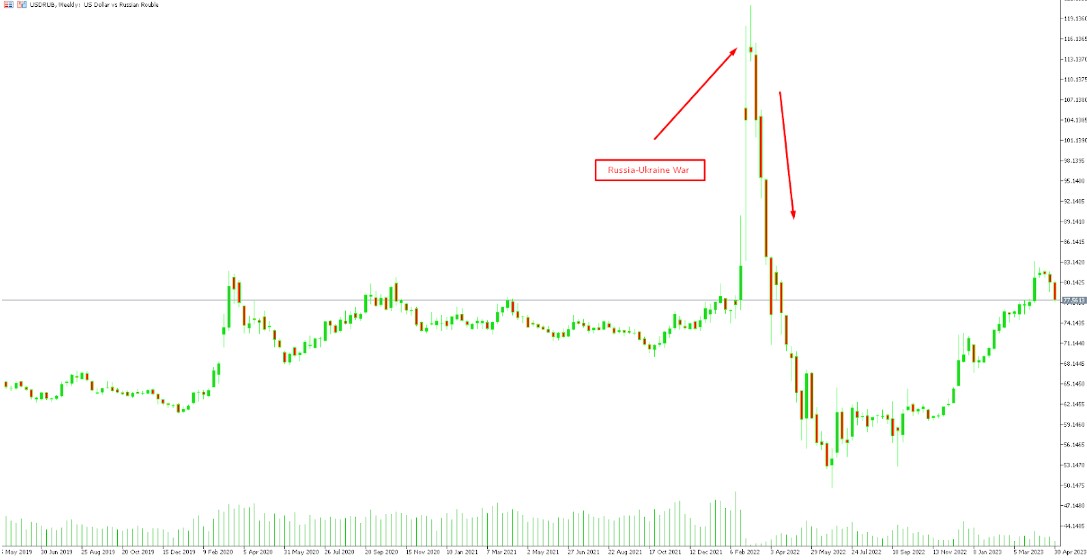- Education
- About Forex
- Forex Fundamentals
Forex Fundamentals - Basics of Forex Trading
The foreign exchange market, also known as the Forex market, is the largest financial market in the world. Trillions of dollars are traded every day, and it operates 24 hours a day, five days a week. The Forex market presents a great opportunity for investors to earn profits by trading different currencies.
However, to be a successful Forex trader, one must first understand the fundamentals of Forex trading. In this article, we will explore the basics of Forex trading and the important Forex fundamentals that every trader should know.

KEY TAKEAWAYS
- The Forex market is the largest and most liquid financial market in the world, with trillions of dollars traded every day.
- Forex trading involves buying and selling currencies with the goal of making a profit.
- Forex fundamentals refer to the various economic, political, and social factors that can impact currency values.
- Some of the key economic indicators that traders should pay attention to include GDP, inflation, and interest rates.
- Political events, such as elections and government policies, can also have an impact on the Forex market.
- Social factors, such as demographics and changes in technology, can also affect currency values.
- Traders need to consider multiple factors when analyzing the market and making trading decisions, as Forex fundamentals can sometimes contradict each other.
- Proper risk management techniques, such as stop-loss orders and diversification, are essential for minimizing potential losses in Forex trading.
- With the right knowledge and discipline, anyone can become a successful Forex trader.
What are Forex Fundamentals
Forex fundamentals refer to the various factors that affect the exchange rate of different currencies. These factors include economic indicators such as inflation, interest rates, and GDP growth rates, as well as political events, natural disasters, and even social factors. All of these variables can impact the value of a currency, and it is essential for you to keep an eye on these fundamental factors when analyzing the market.
For example, if the economy of a country is performing well, with high GDP growth and low inflation rates, then its currency is likely to appreciate in value. Conversely, if a country's economy is struggling, with high unemployment rates and low GDP growth, its currency is likely to depreciate in value. Similarly, political events such as elections, wars, or natural disasters can also have a significant impact on the value of a currency.

Basics of Forex Trading
Forex trading involves buying one currency while simultaneously selling another currency. This is done in the hopes of profiting from the difference in exchange rates between the two currencies.
For example, if an investor believes that the euro will appreciate in value compared to the US dollar, they would buy euros and sell dollars. If the euro indeed appreciates, the investor would sell the euros and buy dollars back, making a profit.
Forex trading can be done through a Forex broker, who acts as an intermediary between the trader and the market. Most Forex brokers offer trading platforms that allow traders to buy and sell currencies in real-time. If you're looking to download a trading platform, MetaTrader 4 download is the way to go. This popular platform can be downloaded for free from IFC Markers.
When trading Forex, it is essential to have a solid understanding of technical analysis, which involves analyzing price charts and identifying patterns that indicate potential market movements. Technical analysis can help traders identify the best entry and exit points for their trades, as well as manage risk by setting stop-loss orders.
Another important aspect of Forex trading is risk management. You should never risk more than they can afford to lose, and they should always use stop-loss orders to limit potential losses. Traders should also diversify their portfolio by trading different currency pairs and avoiding putting all their money into one trade.
Examples of Forex Fundamentals
One of the most important Forex fundamentals is Interest Rates.
Central banks, such as the Federal Reserve in the United States, have a significant impact on the Forex market by adjusting interest rates. Higher interest rates tend to attract foreign investment, which increases the demand for a currency and drives up its value. Conversely, lower interest rates tend to discourage foreign investment, which can cause a currency to depreciate in value.
Another Forex fundamental is GDP growth.
A country's GDP, or Gross Domestic Product, is a measure of its economic output. If a country's GDP is growing, its currency is likely to appreciate as investors see it as a sign of a strong economy. On the other hand, if a country's GDP is shrinking, its currency is likely to depreciate.
Political events can also have a significant impact on Forex markets. For example, if there is political instability in a country, investors may become hesitant to invest in that country, which can cause its currency to depreciate. Similarly, if a country is experiencing political turmoil, its central bank may have to adjust interest rates or take other measures that can affect the value of its currency.
In addition to economic and political factors, social factors can also impact the Forex market. For example, demographic trends, such as an aging population or changes in consumer behavior, can have an impact on currency values. Similarly, changes in technology or infrastructure can also affect a country's currency value.
It's worth noting that Forex fundamentals can sometimes contradict each other. For example, a country with a strong GDP growth rate may also have high inflation, which can cause its currency to depreciate. As such, you need to consider multiple factors when analyzing the market and making trading decisions.
Risk and Management in Fundamental Analysis
Fundamental analysis is a powerful tool for forex traders, but it is not without risks. While the analysis of economic data and other factors can provide valuable insights into the market, it is important to understand the potential risks and take steps to manage them.
Set Stop Loss Orders
Stop-loss orders are a vital tool for managing risks in forex trading. These orders allow traders to set a predetermined exit point for a trade, limiting their potential losses. For example, a trader could set a stop loss order at 1.5% below the entry point to limit their losses if the trade moves against them.
Practice Proper Position Sizing
Proper position sizing is another essential risk management technique for forex traders. Traders should avoid over-leveraging their trades and ensure that their position size is appropriate for their trading account. This can help reduce the potential losses from unexpected market movements.
Diversify Your Trading Portfolio
Diversification is another important risk management technique. Forex traders should consider diversifying their trading portfolio to reduce the impact of unexpected market movements. For example, traders could consider trading in other financial markets, such as stocks or commodities, to spread their risk.
Keep Up with Economic Data and News Events
To reduce the risk of unexpected market movements, traders should stay up-to-date with economic data releases and other news events that could impact the forex market. This can help traders make informed decisions and adjust their trading strategies accordingly.
Use Technical Analysis
Finally, traders can use technical analysis as a complementary tool to fundamental analysis. Technical analysis involves analyzing market trends and price movements to identify potential trading opportunities. By using both fundamental and technical analysis, traders can gain a more comprehensive understanding of the market and reduce the risk of unexpected market movements.
Bottom Line on Forex Fundamentals
Forex trading can be a profitable venture, but it is not without risks. To be a successful Forex trader, it is essential to have a solid understanding of Forex fundamentals and technical analysis. By keeping an eye on economic indicators, political events, and social factors, traders can gain insights into potential market movements.
However, it's important to remember that Forex trading is inherently risky, and traders should never risk more than they can afford to lose. It's also important to use proper risk management techniques, such as stop-loss orders and diversification, to minimize potential losses.
In conclusion, Forex fundamentals are the foundation of successful Forex trading. By understanding the various factors that affect currency values, traders can make informed decisions and increase their chances of profitability. With the right knowledge and discipline, anyone can become a successful Forex trader.


